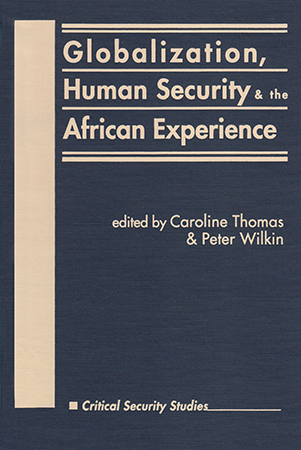
- 1999/216 pages
- Critical Security Studies
Globalization, Human Security, and the African Experience
Hardcover: $65.00
ISBN: 978-1-55587-699-9
The globalization of world politics affects issues rarely considered in traditional security studies. This book explores the interrelationships of those issues in critical security terms, drawing on the African experience.
The authors provide a mixture of theory and case studies distinguished by thorough cross-referencing. The introduction to the book establishes the context of the security debate; it sets out the relationship between globalization and security and explores the challenges posed to the realization of security, defined holistically, by the processes of globalization. Subsequent chapters focus on class, community, gender, justice, and race—concepts central to the elaboration of the new security, but too often neglected. The case studies in Part 2 empirically explore these same conceptual issues, and the final chapter presents an overview of the African experience.
The authors provide a mixture of theory and case studies distinguished by thorough cross-referencing. The introduction to the book establishes the context of the security debate; it sets out the relationship between globalization and security and explores the challenges posed to the realization of security, defined holistically, by the processes of globalization. Subsequent chapters focus on class, community, gender, justice, and race—concepts central to the elaboration of the new security, but too often neglected. The case studies in Part 2 empirically explore these same conceptual issues, and the final chapter presents an overview of the African experience.







